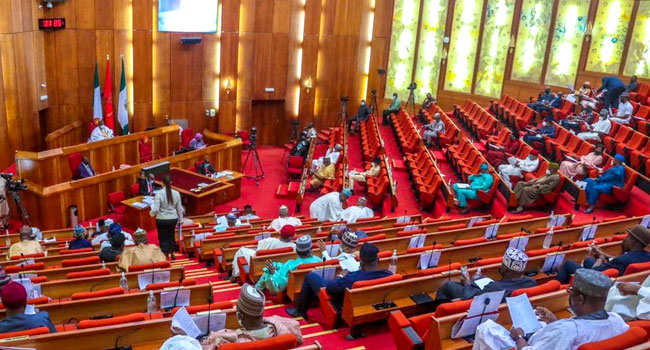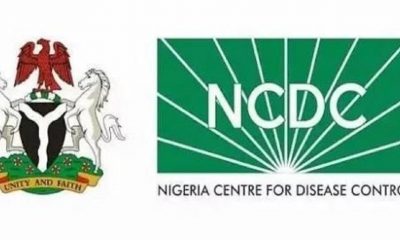Politics
Senate States Position On Public Health Bill

The National Assembly has disclosed that the harmonised Public Health Bill, which is awaiting Presidential assent was passed to revoke the 96-year-old Quarantine Act and establish a legal and administrative framework for managing public health emergencies of national and international concern.
The Chairman of the Senate Committee on Health, Senator Ibrahim Oloriegbe, disclosed this while speaking, alongside other stakeholders, at a Media Roundtable organised by Nigeria Health Watch in partnership with the Global Health Advocacy Incubator in Abuja.
Oloriegbe said the Senate passed the Bill in January 2022, proposing a series of public interest aimed at enhancing Nigeria’s response to public health emergencies.
According to Oloriegbe: “The Bill for an Act to Provide for an Effective National Framework for the Control of Outbreaks of Infectious Diseases and Other Events Endangering Public Health and Requiring Public Health Emergency Measures and for other Related Matters” was initially presented to the Senate in 2020.
“The bill aimed to equip the Nigerian government with the legal tools to respond effectively to health crises”.
“COVID-19 pandemic is not just a health problem but also an economic problem that has impacted the health and economy of the country”.
“The importance of strengthening the country’s health security cannot be overemphasised as the COVID-19 pandemic would not be the last outbreak.
The chairman of the Senate Committee on Health also highlighted the contributions of the 9th National Assembly in strengthening Nigeria’s health security by increasing visibility and financing allocation for health security in Nigeria.
Earlier, the Chairman, House Committee on Health Services, Hon. Tanko Sununu, maintained public health law and policy are vital tools for shielding Nigerians from health threats, preventing diseases and promoting healthy populations.
“Public health not only offers adequate and timely medical care but also monitors, tracks, and controls disease outbreaks, making it a crucial element of national security”.
Sununu emphasised that the critical role played by the National Assembly in combating infectious disease outbreaks in the country should not be downplayed as he call for media collaboration with the health committees at the National Assembly to fast-track ways to enhance the implementation of the new public health bills in Nigeria.
“By accelerating efforts to pass and implement the bills, the government would be demonstrating its commitment to protecting the health and well-being of Nigerians and ensuring that the country is better equipped to respond to any future public health emergencies,” he said.
Meanwhile, the Managing Director of Nigeria Health Watch, Vivianne Ihekweazu explained the media roundtable provided a unique opportunity for experts to share their views on the proposed public health bills.
“The bills have significant implications for public health in the country and must be thoroughly examined and discussed by key stakeholders in the health sector.
“The bills include the Public Health Emergency Bill, the Amendment of the National Health Act and the Port Health Authority Bill, aimed at enhancing the country’s response to public health emergencies,” she said.
Also speaking, the Head of the Global Health Advocacy Incubator, Dr Emmanuel Alhassan explained that the COVID-19 pandemic has indicated the critical importance of robust and sustained funding for public health emergencies.
He further noted that through advocacy efforts, Nigeria has achieved notable successes in securing increased funding for Epidemics Preparedness and Response, as well as improvements in the country’s epidemic preparedness and response capabilities.
Send Us A Press Statement Advertise With Us Contact Us
And For More Nigerian News Visit GWG.NG













